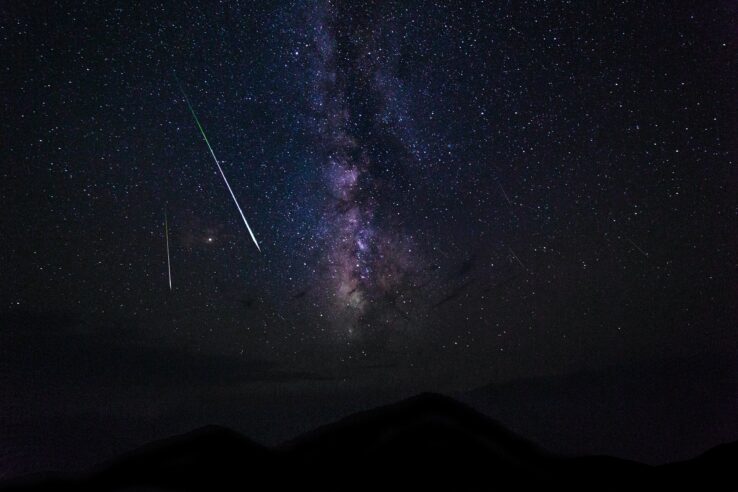Each December, the Geminids meteor shower graces Earth’s residents with a spectacular light show. This shower is beloved for its impressive display of bright, slow-moving meteors, making it one of the most anticipated events for stargazers around the world. For those living in Elizabeth, Colorado, and the Independence community, there are ample ways to get outside for an extraordinary evening under the stars.
History of the Geminids Meteor Shower
The name “Geminid” is derived from the Gemini constellation, as the meteors appear to radiate from this point in the night sky. Unlike most meteor showers, which are caused by debris from comets, the Geminids originate from the 3200 Phaethon asteroid, which was the first asteroid discovered via spacecraft in 1983! This legendary celestial event first started in the 1800’s but only boasted 10 – 20 meteors per hour. Now during peak activity in mid-December, observers can witness up to 120 meteors per hour under optimal conditions. The Geminid meteor shower is cherished by astronomers and casual stargazers alike for its breathtaking natural light show, creating a sense of wonder and connection to the vastness of the universe.
When & Where
The predicted peak viewing time is slated for December 14 at 19:27 UTC, which is 1:27 MST, but rest assured, the Old Farmer’s Almanac predicts that you’ll be able to bask in the glow of Geminid meteors all evening long. It reports that “Geminid meteors can be seen all night long because Gemini rises so early, though Gemini is at its highest point (offering optimal viewing) around 2 am. However, the meteor shower is usually in full swing by 9 p.m. because the sun sets so early in December.” The entire shower will likely occur from November 19 to December 24 and Elizabeth residents should be able to catch the light show anywhere clear with minimal light pollution, especially at the Independence Community!
Independence Open Space
With over 400+ acres of open space throughout the Independence community, there are plenty of places to set up your telescope or sprawl out on a picnic blanket with eyes fixed on the universe. Take a nature trail and see where you end up.
Castlewood Canyon State Park
Travel time from Elizabeth: 15 minutes
Just a short drive from Independence Community, Castlewood Canyon State Park feels like a world away. Winding trails along the canyon floor treat hikers to a secluded nature walk. Known for its biodiversity, plan to picnic in the canyon and keep an eye out for bighorn sheep. The park gates close at sunset but that doesn’t mean you can’t take in the dark night sky from just outside. Set up in the parking lot for some amazing views.
Red Rocks & Morrison
Travel time from Elizabeth: 1 hour
This locale isn’t just a fantastic music venue, but a wonderful place to see some remarkable lights. Pack a picnic and take an evening hike with headlamps to find a cozy spot around Red Rocks Amphitheater to kick back and wait for the celestial show to start.
Garden of the Gods State Park
Travel time from Elizabeth: 1 hour
For epic views of rocky silhouettes cast against the night sky, head south to Garden of the Gods. Make an evening out of it and grab dinner in downtown Manitou before heading out to this natural area to see the meteor shower.
Jackson Lake State Park
Travel time from Elizabeth: 1 hour 45 minutes
Named an International Dark Sky Park in 2020, Jackson Lake State Park is among the best places to star-gaze year-round in Colorado. If you have the time, plan to camp out to enjoy the lake in the daytime, as well.
At our conservation community, we love to see our neighbors get outside and embrace the gifts that Mother Nature has to offer. Don’t miss the chance to take a stroll beneath the dark sky near the Independence Community and witness this truly remarkable phenomenon!

